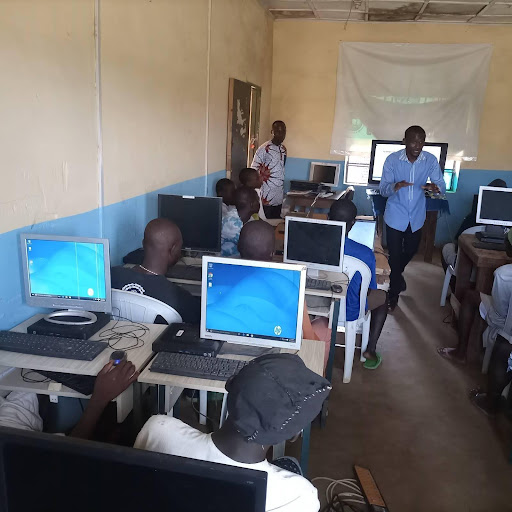Digital Inclusion for Detainees and Staff of the Kafanchan Correctional Center with Fantsuam
Through this project we facilitate digital literacy training to detainees and staff members to ensure better transition to general society.

Project status: Closed
Country: Nigeria
Partner: Fantsuam Foundation
Impact goal: 40 detainees and 10 staff members
About the project
Correctional Centers can cause physical, mental health, and psychological stress, as well as increased likelihood of recidivism and further alienation from the general society. The seclusion and lack of provision of adequate intellectual stimulation of offenders at the Correctional Center is not conducive for achieving positive behavioral changes. However, when ICT development opportunities are extended to such populations, their integration into the larger society can be better assured. This project will facilitate higher levels of digital literacy for 40 detainees and 10 staff members of the Kafanchan Correctional Center. This pilot project will provide a proof of concept that can be used for advocacy. The advocacy efforts will be for a roll-out of such capacity building opportunities across the 240 correctional centers across Nigeria.
Results
The project provided basic digital literacy training for 38 inmates and 15 officials of the Correctional Center. There was a lot more enthusiasm for the training from the officials of the center than the inmates. This is due to deficiencies in basic reading and writing skills of the inmates. The project therefore shows that more efforts can be devoted to providing basic reading and writing skills for the inmates while the officials can continue with higher levels of digital literacy training.
The project provided for installation of 5 stand-alone Thin clients, solar installation (gel battery , solar panels and integrated charge controller) to power the systems. These investments will enable Fantsuam Foundation to continue its digital literacy training beyond the involvement of 48 percent.
Challenges
The administrative set up of the correctional center has several security features built into it. The access of inmates to continuing education opportunities is affected by the nature and duration of their offence. Given the duration of the project, the selection of participants was best left to the senior officials of the correctional center. The officials needed to liaise with their headquarters, keeping them informed and assessing any unfolding security challenges that may affect the training schedule.
Half way through the training, a national political decision was taken to grant amnesty for certain categories of inmates of the correctional center. Some of these were already enrolled in the training and we had to fast-track aspects of the training which they were yet to cover, before their discharge. On discharge, they all relocated to cities that were far away from correctional center.
During the training, some of the officials were promoted to higher ranks and they had to relocate to other correctional centers. Arrangement has been made to remain in touch with such officials so that they can continue and complete their digital literacy training.
Due to operational requirements and security concerns, the correctional center maintains a dynamic population of inmates and officers. Future training opportunities must factor this into the time-scale of the training. It is to better address such challenges, otherwise this sub-population will remain digitally excluded.
About the partner
Fantsuam Foundation is a female led organization on a mission to eliminate poverty and disadvantage among women and youths through integrated development programs in the Kaduna State in Nigeria.
Visit their website here to learn more about them.